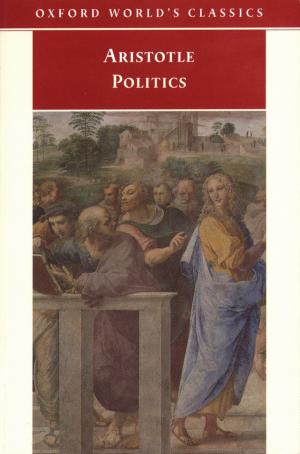Divine Agency and Divine Action, Volume I
Exploring and Evaluating the Debate
Nonfiction, Religion & Spirituality, Theology, Christianity| Author: | William J. Abraham | ISBN: | 9780192517753 |
| Publisher: | OUP Oxford | Publication: | October 27, 2017 |
| Imprint: | OUP Oxford | Language: | English |
| Author: | William J. Abraham |
| ISBN: | 9780192517753 |
| Publisher: | OUP Oxford |
| Publication: | October 27, 2017 |
| Imprint: | OUP Oxford |
| Language: | English |
Divine Agency and Divine Action, Volume I lays the groundwork for a constructive contribution to the contemporary debate regarding divine action. Noted scholar, William J. Abraham argues that the concept of divine action is not a closed concept-like knowledge-but an open concept with a variety of context-dependent meanings. The volume charts the history of debate about divine action among key Anglophone philosophers of religion, and observes that they were largely committed to this erroneous understanding of divine action as a closed concept. After developing an argument that divine action should be understood as an open, fluid concept, Abraham engages the work of William Alston, Process metaphysics, quantum physics, analytic Thomist philosophy of religion, and the theology of Kathryn Tanner. Abraham argues that divine action as an open concept must be shaped by distinctly theological considerations, and thus all future work on divine action among philosophers of religion must change to accord with this vision. Only deep engagement with the Christian theological tradition will remedy the problems ailing contemporary discourse on divine action.
Divine Agency and Divine Action, Volume I lays the groundwork for a constructive contribution to the contemporary debate regarding divine action. Noted scholar, William J. Abraham argues that the concept of divine action is not a closed concept-like knowledge-but an open concept with a variety of context-dependent meanings. The volume charts the history of debate about divine action among key Anglophone philosophers of religion, and observes that they were largely committed to this erroneous understanding of divine action as a closed concept. After developing an argument that divine action should be understood as an open, fluid concept, Abraham engages the work of William Alston, Process metaphysics, quantum physics, analytic Thomist philosophy of religion, and the theology of Kathryn Tanner. Abraham argues that divine action as an open concept must be shaped by distinctly theological considerations, and thus all future work on divine action among philosophers of religion must change to accord with this vision. Only deep engagement with the Christian theological tradition will remedy the problems ailing contemporary discourse on divine action.















